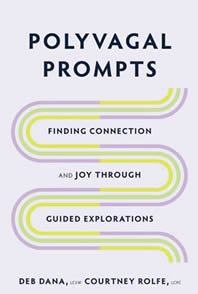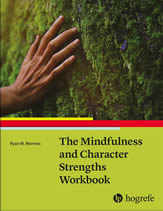Trauma Sensitive Yoga Deck for Kids: For Therapists, Caregivers, and Yoga Teachers
Trauma Sensitive Yoga Deck for Kids: For Therapists, Caregivers, and Yoga Teachers combines yoga practices and psychological science to inform readers on the use of a yoga practice to aid in the treatment of and care for traumatized children. Unlike typical yoga decks, the Trauma Sensitive Yoga Deck for Kids is trauma informed and somatically focused.
BOOK REVIEW – The Little Book of Being
Winston’s new guide offers helpful advice for both novice meditators and experienced meditators looking to improve their practice. The concept of "natural awareness" can seem vague at times, and Winston repeatedly defines it throughout the book. However, her “glimpse” exercises and anecdotes help the guide feel more engaging and the concept of natural awareness to feel more accessible.
Trauma and the Unbound Body
Written by Judith Blackstone, PhD
Reviewed by Nancy Eichhorn, PhD
“Wholeness is not a vague ideal, but a lived experience. It is a potential, inherent in...
Power of Attachment – Review
Heller provides a clear discussion to help readers understand attachment theory in general and the different attachment styles, noted as secure, anxious, ambivalent, and disorganized. At the end of each chapter there are questions to help readers assess which style they may align more with. I appreciated the direction to answer the questions, twice. First, when you are imagining a relaxed situation and second when you are tense, feeling defensive, upset. The results are indeed different. I also thought it wise to let readers know that our attachment style is not fixed in one category or the other. Our attachment style is individualized, and fluid, flexible. In some relationships we may have a sense of a secure attachment while in another we might feel more avoidant or ambivert.
The Elusive Obvious: The Convergence of Movement, Neuroplasticity & Health
Feldenkrais wrote The Elusive Obvious in his mid-70s, three years before his death, with the intention to offer a "coherent and comprehensive statement of his theoretical point of view" (xii). His writing style intrigued me, his conversational tone engaging. His conversations about words and movement, about science and acceptance, about learning and awareness pulled me deeper into his philosophical stance on health and healing. He offered that the content only provides information necessary to understand how his techniques work. He deliberately avoided discussing why. "In science," he wrote, "we really only know how" (pg.1).
Unshame: Healing Trauma-based Shame through Psychotherapy
I follow Carolyn’s blog because her writing fascinates me. She helps people (mainly in the UK) recover from trauma, abuse, and dissociative disorders, heavy stuff. Yet, she writes with a light hand—her use of figurative language, strong nouns and verbs, pacing, structure, and characterization create stories that share the confusion, the pain, the doubt, the suffering, and the dread that come with trauma as well as the desire to surmount it all and be healthy without miring the reader in an abyss of drop-dead emotions.
When I learned about her new book, Unshame: Healing Trauma-based Shame through Psychotherapy, I requested a reviewer’s copy.
The Inflamed Mind: A Radical New Approach to Depression
In The Inflamed Mind, Dr. Bullmore posits a new theory for the cause of depression: bodily inflammation. Guiding the reader through a timeline of medicinal practice, Bullmore synthesizes historical accounts with anecdotal references to make a compelling case for the link between inflammation and depression.
Tea and Cake with Demons: A Buddhist Guide to Feeling Worthy
Adreanna Limbach’s new book Tea and Cake with Demons relies on Buddhist teachings to improve our self-worth and explore our insecurities. Limbach believes that the Buddha represents our capacity to be present in our own lives and come to know the “fundamentally whole” versions of ourselves. The book explores this mindset through the lens of Buddhist teachings and the Four Noble Truths. Limbach has divided the book into three parts: Waking Up to Worthiness, The Four Noble Truths, and The Eightfold Path.
How to Think Like an Anthropologist
There is a hackneyed tale of two young fishes. As they are swimming in the sea, they encounter an old fish who asks them, “Morning, boys. How’s the water?” The two fishes pass him by without saying a word and then one of them looks over to the other one and goes, “What is water?”
In his new book, How to Think Like an Anthropologist?, Matthew Engelke takes on the daunting task of asking us about the water: our culture.
Therapy with a Coaching Edge
Lynn Grodzki’s new book, Therapy with a Coaching Edge, guides professionals who are interested in a model of therapy that incorporates a coaching approach. She begins with a description of the basic model, which is comparable to a combination of traditional psychotherapy and life coaching. She then explores a set of nine specific coaching skills, including asking motivating questions and being more reactive. Grodzki has designed the book to be flexible and suitable for people with varying interests so that professionals can either adopt the complete model or select the concepts and skills that appeal to them the most.














